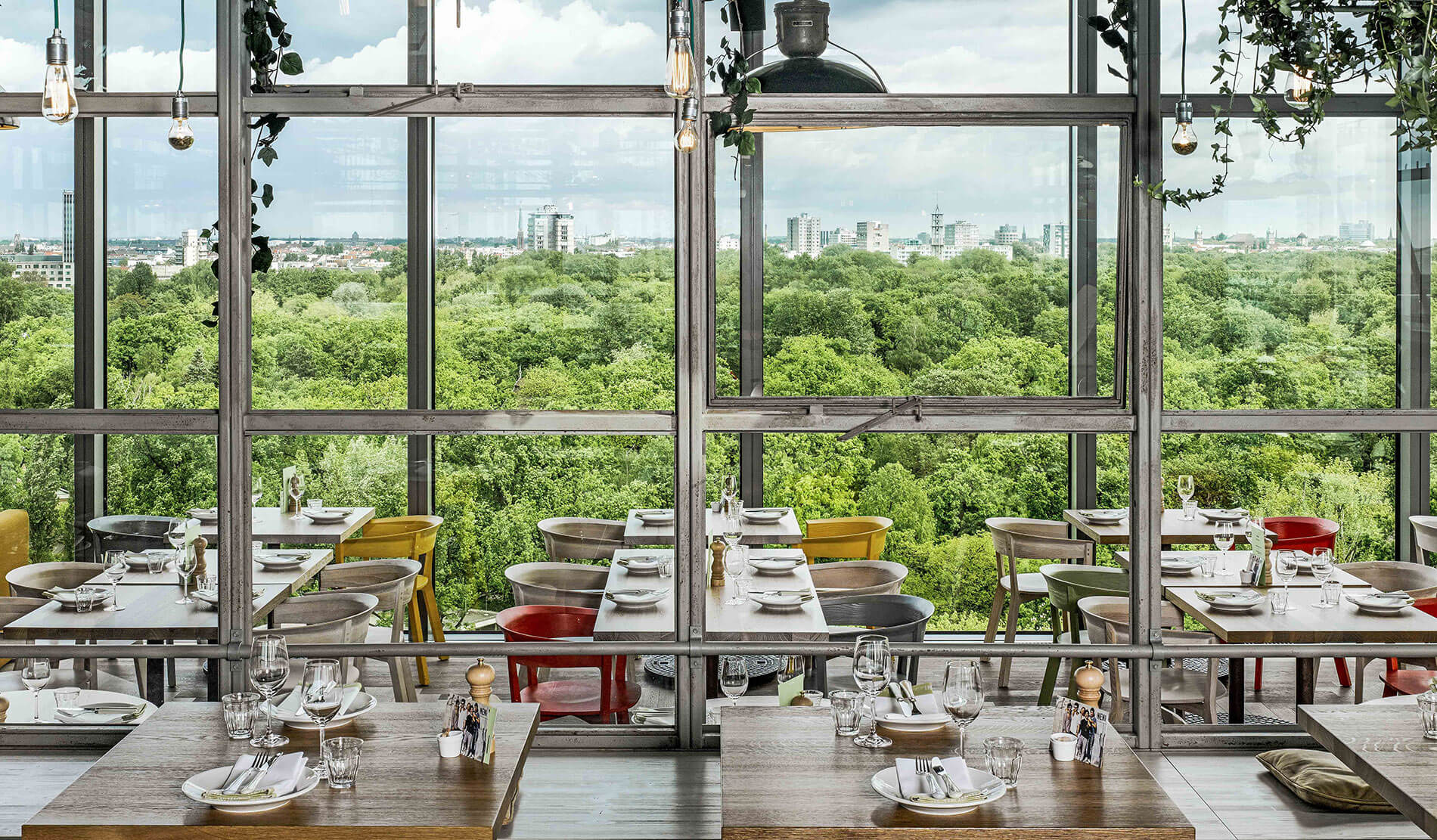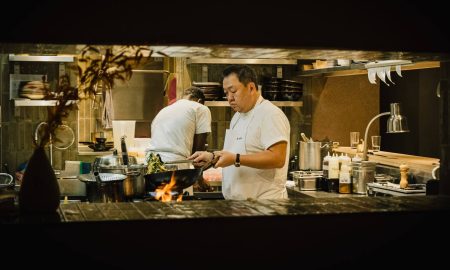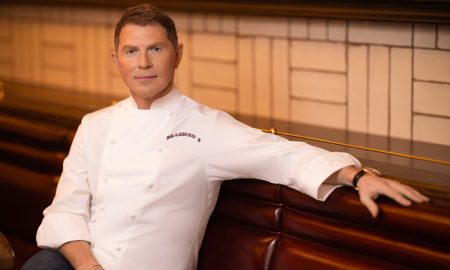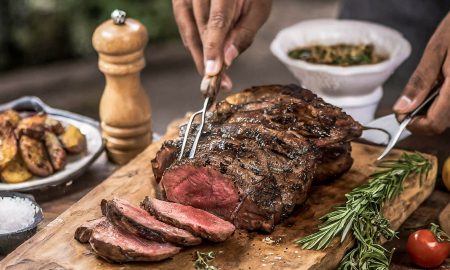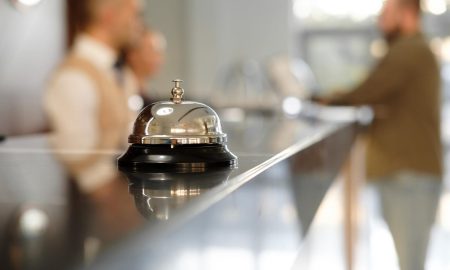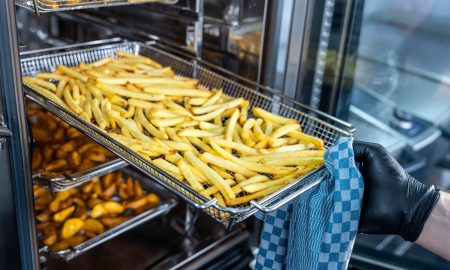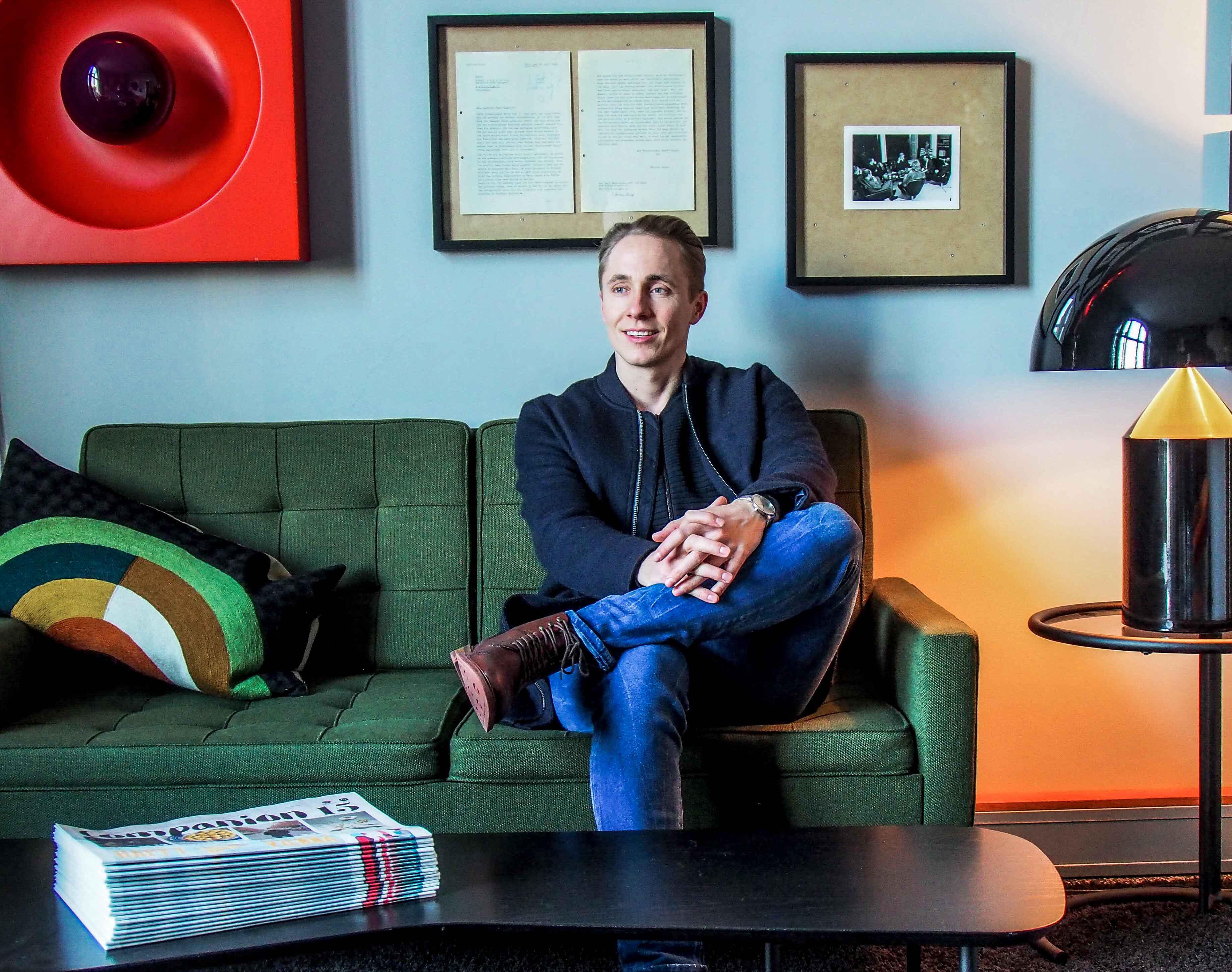
Robert Hesse; Image: 25hours Hotel | Stephan Lemke
The 25hours hotels F&B concept
KTCHNrebel: Mr. Hesse, gastronomy seems like one of 25hours Hotels’ main areas of focus, even though nowadays many of your competitors are de-emphasizing the F&B side of things. What’s the strategy behind that?
Robert Hesse: You’re right. Gastronomy is extremely important to us. One of our key goals is to fill our hotels with life, and we do that by bringing appealing, exciting ideas to our locations. It’s also important to us to reach the locals, the neighbors. We want our restaurant concepts to be interesting and easily accessible to them as well.
KTCHNrebel: So you must use a special F&B concept for that, then? Particularly with NENI in Germany.
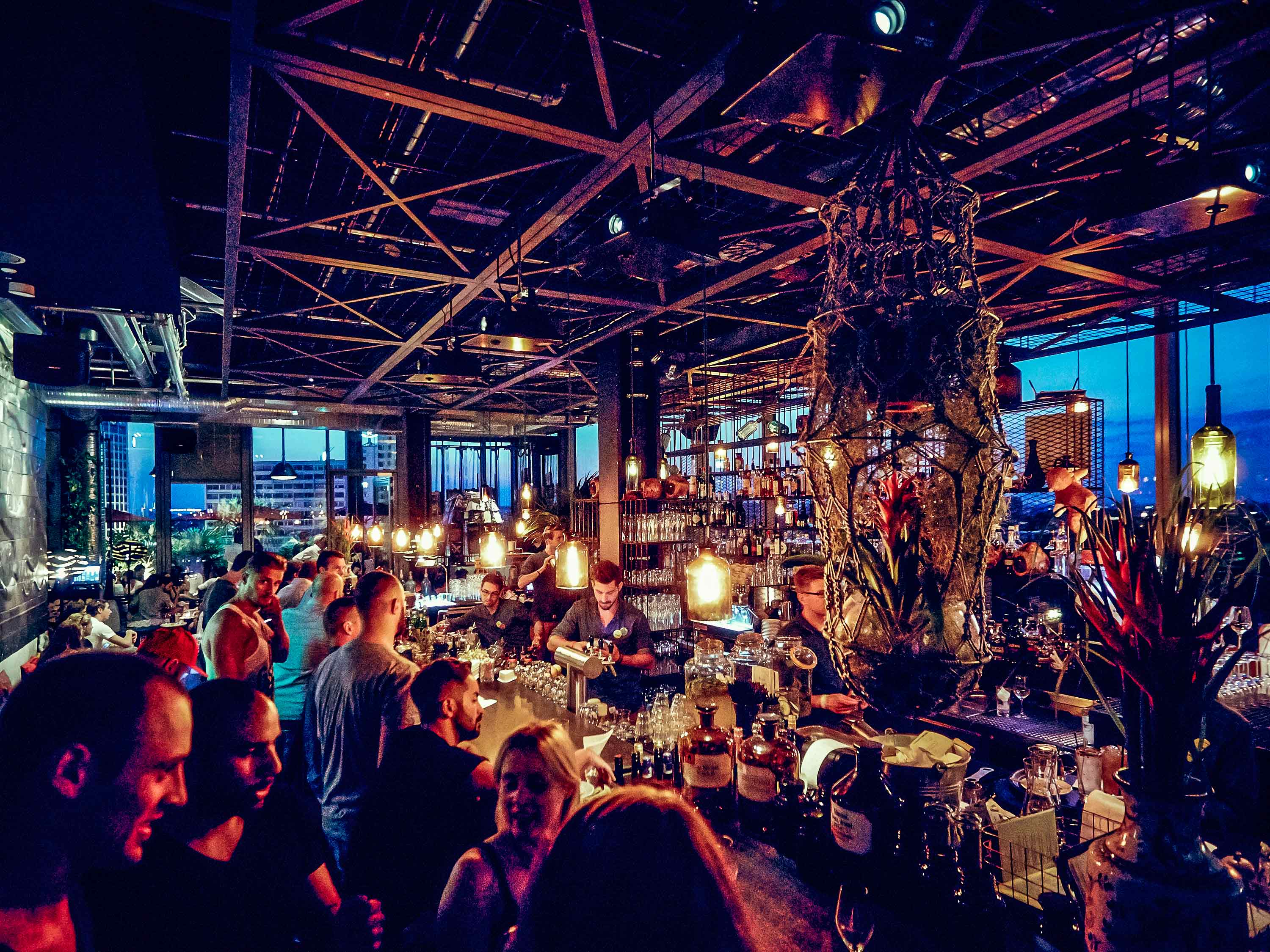
Image: 25hours Hotel | Stephan Lemke
Robert Hesse: We don’t generally have one single F&B concept – it’s more like we’re always looking for new, exciting, innovative ideas. The NENI concept has developed into a real success story for us. We worked with Haya Molcho and her sons to create a one-of-a-kind restaurant experience that wins people over through its relaxed, authentic atmosphere. Design and story are strengths of ours, and we use them to make each restaurant different, while still managing to give them all a lively, cosmopolitan feel.
KTCHNrebel: Will your F&B strategy change in the future, given your plans for internationalization (new hotels in Dubai, Florence and Copenhagen)?
Robert Hesse: Since we already have a wide range of concepts, we’re really looking forward to expanding, and to the opportunities it will give us to try out new ideas. We’re always on the lookout for innovative concepts that will fit different locations. Our top priorities every time are maintaining our high standards of quality and creating an unforgettable experience for our customers. So there’s never a dull moment, and we definitely plan on filling our hotels with new F&B ideas.
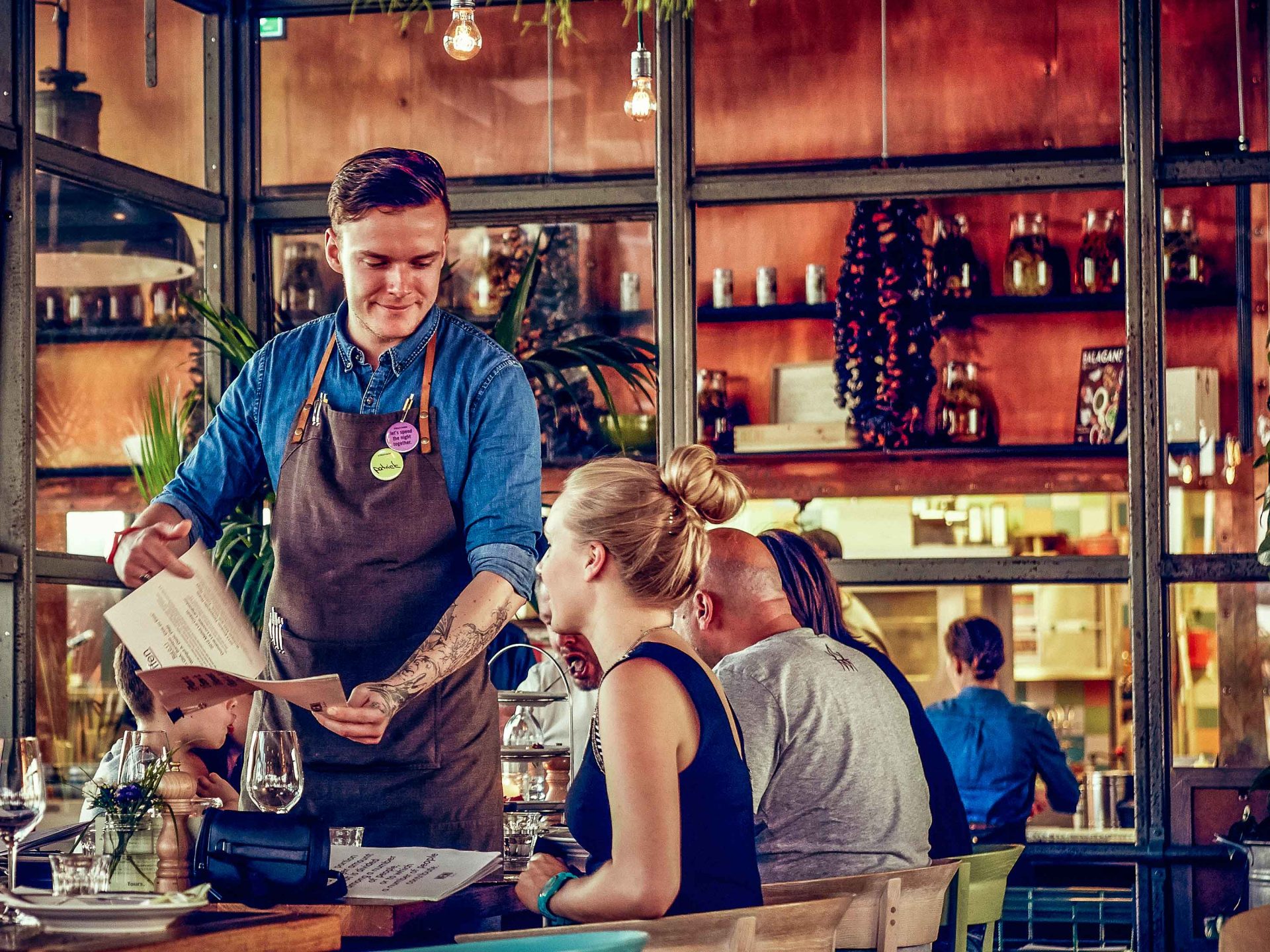
Image: 25hours Hotel | Stephan Lemke
KTCHNrebel: And regardless of where 25hours is in the world, your goal is always to appeal to a specific target group. How do you accommodate special customer requests?
Robert Hesse: In general, our restaurants are aimed at a young, quality-conscious audience. That audience expects us to cater to their desires for transparency, sustainability, and an emotional experience. Those desires have a fundamental influence on our success, so we strive to accommodate them. We do that first and foremost by placing a lot of emphasis on our employees’ training and professional development. Since we’re part of the service industry, interactions with our guests are a big factor in how well we’re able to meet our customers’ needs. That’s the key to our success.
Digitalization and attractive working environments: two reactions to the shortage of qualified staff
KTCHNrebel: Mr. Hesse, I’m sure that qualified staff shortages are an issue for 25hours as well. Are you doing anything concrete to counteract that situation?
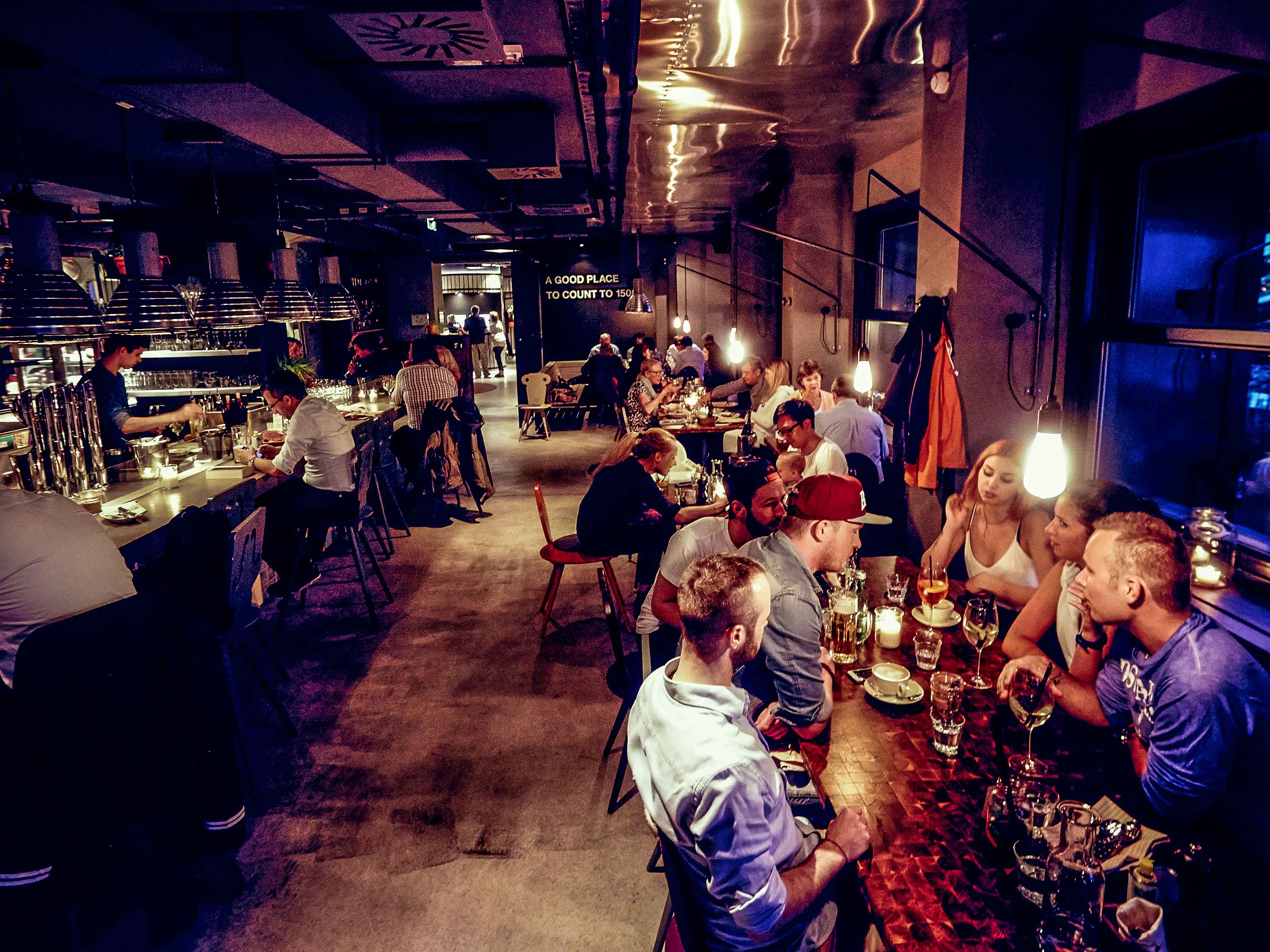
Image: 25hours Hotel | Stephan Lemke
Robert Hesse: In this day and age, the lack of qualified professional staff is definitely something we’re noticing, especially in our operative departments. We’re trying to counter it by creating an attractive working environment and offering special employee benefits.
KTCHNrebel: Whenever staff shortages come up, the next magic word that always comes up is “digitalization”. Do you think that digitalization can help there?
Robert Hesse: Yes, because digitalization can simplify or even fully replace a lot of work processes. That allows staff members to focus on the more interesting, exciting aspects of their day-to-day work. Even with the positive effects of digitalization, we also think it’s extremely important to take time to appreciate our employees. Personal interaction, in particular, reinforces relationships and helps create a good work environment for both sides.
KTCHNrebel: What aspects of kitchen life would you say digitalization could potentially improve even more?

Image: 25hours Hotel | Stephan Lemke
Robert Hesse: Digitalization can be used to improve operational processes in general. Ordering software, for example – it could trigger orders automatically. And nowadays, we can digitally record hygiene processes, which is something we used to have to do by hand. Digital work schedules are another example: we have special programs now that we can use to create optimum schedules, while accounting for certain legal constraints.
KTCHNrebel: To finish up, Mr. Hesse, let’s take a look into the crystal ball. What do you think F&B will be like at 25hours Hotels in ten years?
Robert Hesse: Looking at how things are today, an unbelievable amount can happen in ten years. The world is always changing, and so are our customers’ expectations and desires. In ten years, 25hours Hotels will be represented in many more metropolises around the world. We’ll be impressing people with a wide range of gastronomic innovation, just as we’re doing now in many cities.


